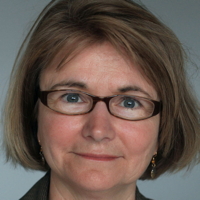A Minnesota-funded college has taken root in rural Bolivia
February 16, 2016 - startribune.com
 By Jean Hopfensperger , Star Tribune
By Jean Hopfensperger , Star Tribune
In a remote farm community nestled in the Bolivian mountains, a Catholic university has taken root thanks to Minnesota supporters 4,500 miles away.
Called the Unidad Academica Campesina, it has offered college degrees to indigenous students in practical fields such as nursing, agronomy and veterinary sciences for more than 20 years. Most graduates of the college, in the town of Carmen Pampa, return to their rural communities with much-needed skills.
The academy was named one of the world's top models for eradicating poverty by a United Nations subcommittee examining antipoverty strategies. Its goal is to grow its accomplishments, and leaders are preparing to meet with a major funder next month that could provide its biggest grant ever .
Their sales pitch: The college is a terrific investment.
"You can educate a student for $1,800 to $2,000 a year, and the amount of change they bring back to the community is priceless," said Mark Leahy, chairman of the board for the Carmen Pampa Fund, the college's Minnesota-based fundraising arm.
"The students leaving earn three times as much money as their parents do," said Leahy. "We think that's pretty good."
The college is one of the few nonprofits in Bolivia with tight Minnesota ties, said Hugh Smeltekop, the fund's executive director. Bolivia is the poorest nation in Latin America with an average per capita income of $2,800, he said.
Until the college was built, the nearest college was in La Paz, he said, and the cost was prohibitive for the small farm families in the area.
The college, northeast of La Paz, got off the ground in 1993 through a collaboration of the Catholic University of Bolivia, which included a religious order of Franciscan missionary sisters. One of those sisters, Sister Damon Nolan, encouraged then-St. Paul residents Richard and Ann Leahy to lead the school's fundraising.
The Leahys agreed, donating substantially themselves, and recruiting widely among the Twin Cities Catholic community. Richard was a former seminary student here, and he recruited two former classmates who continue to lead the charge — the Rev. Tom Garvey, retired from St. Francis Cabrini church in Minneapolis, and former priest Ed Flahavan, formerly of St. Joan of Arc.
Donations from Minnesota helped the campus expand to 700 students today. New degrees were added, such as ecotourism and education. A health clinic for the entire community was built. Minnesota has also sent volunteers and teachers.
A 2012 survey of graduates showed that 95 percent were employed, 89 percent were working in their field of study, and 91 percent held jobs supporting Bolivia's rural economy.
A new addition to the campus is a processing facility for its coffee, some of which is making its way to Minnesota. Taking a cue from trendy wine and beer tasting fundraisers, Smeltekop last month launched coffee tastings around the Twin Cities, introducing participants to Carmen Pampa — and to the ABCs of coffee production.
"It connects coffee to real people who need their help to get an education," said Smeltekop. "It's fun, and people get to learn about something they probably drink every day."